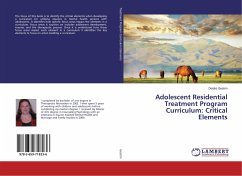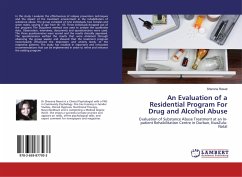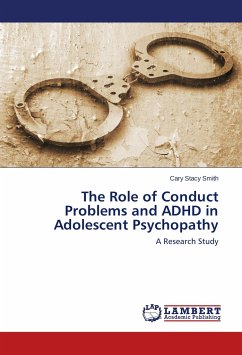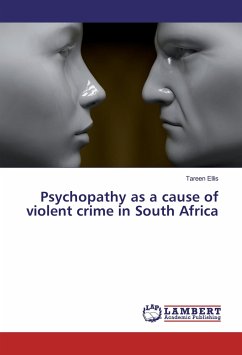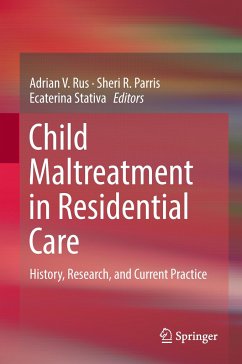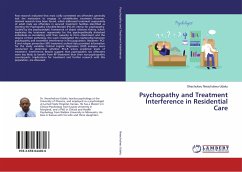
Psychopathy and Treatment Interference in Residential Care
Versandkostenfrei!
Versandfertig in 6-10 Tagen
47,99 €
inkl. MwSt.

PAYBACK Punkte
24 °P sammeln!
Past research indicated that most civilly committed sex offenders generally lack the motivation to engage in rehabilitative treatment. However, minimal research have been found, which addressed treatment responsivity of adult male sex offenders in secured treatment facilities identified as meeting the Psychopathy Checklist-Revised (PCL-R) criteria for psychopathy. Guided by the psychoanalytic framework of object relations theory, which implicates the treatment responsivity for the psychopathically disturbed individuals as correlating with their capacity to form attachment and the degree of the...
Past research indicated that most civilly committed sex offenders generally lack the motivation to engage in rehabilitative treatment. However, minimal research have been found, which addressed treatment responsivity of adult male sex offenders in secured treatment facilities identified as meeting the Psychopathy Checklist-Revised (PCL-R) criteria for psychopathy. Guided by the psychoanalytic framework of object relations theory, which implicates the treatment responsivity for the psychopathically disturbed individuals as correlating with their capacity to form attachment and the degree of their pathology, this work investigated the relationship between psychopathy and treatment interference in this population. Residents' PCL-R and relapse prevention (RP) treatment archival data provided information for the study variables. Ordinal Logistic Regression (OLR) analyses were conducted to determine whether PCL-R scores predicted levels of treatment interference. Results suggest that psychopathic sex offenders were less likely to benefit from RP treatment than their non-psychopathic counterparts. Implications for treatment and further research with this population, are discussed.



